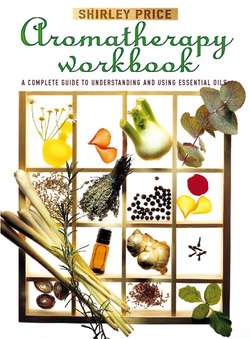Читать книгу Aromatherapy Workbook - Shirley Price - Страница 26
Adulteration
ОглавлениеThe perfume industry is far and away the biggest user of essential oils, followed by the food industry. These industries have to obtain an oil having the same chemical formula (therefore giving the same aroma and flavour) time after time, year after year. It has always been accepted in perfume and flavouring trades that essential oils are standardized and not always 100 per cent true, nor are they always from a named botanical species – they have no need to be. They are being used not to influence the health of the body, but as fragrances or flavourings – a totally different kettle of fish! When aromatherapy arrived on the scene, it was an incredibly small part of an essential oil trader’s business – litres instead of tonnes. The trader could not be expected to undertake the uneconomic supply of special non-standardized or untreated oils for such a small section of his business. This is largely true today and unfortunately there are still suppliers of essential oils to aromatherapists who get their oils from such sources.
It will help to illustrate why it is important for the perfume and flavour industries to alter the original, natural composition of an essential oil if I make a comparison with wine. It is well known that there are good and bad years for wine; the same vineyard making its wine from the same vines each year will produce differences in aroma and taste from year to year. Weather and environment play their part in producing these changes, as they do with essential oil plants, altering the chemical formula of the oil produced. Furthermore, the same plant grown in another part of the world will yield a different oil again. Thus, the perfumer making up a well-known fragrance from a recipe including essential oils experiences a difficulty. For him, essential oils must be standardized, otherwise the end product would neither have the expected aroma, nor be acceptable: it is a question of adjusting (adulterating) the essential oils to achieve a legitimate aim.
Terpenes, a dominant feature in most essential oils, are sometimes removed to concentrate the remaining, more desirable constituents. The resulting compounds are known as folded or terpeneless oils, the terpenes often being used to adulterate another oil (see below).
Essential oils are also adulterated for commercial reasons – perhaps in an unethical way when operating in the field of aromatherapy. Before we bought our essential oils direct from the growers we were often asked, when ordering, ‘How much do you want to pay?’ In those days we did not realize what a complex business it was to buy essential oils, but we knew enough not to like being asked how much we wanted to pay, rather than being told the straightforward cost of the genuine oil!
